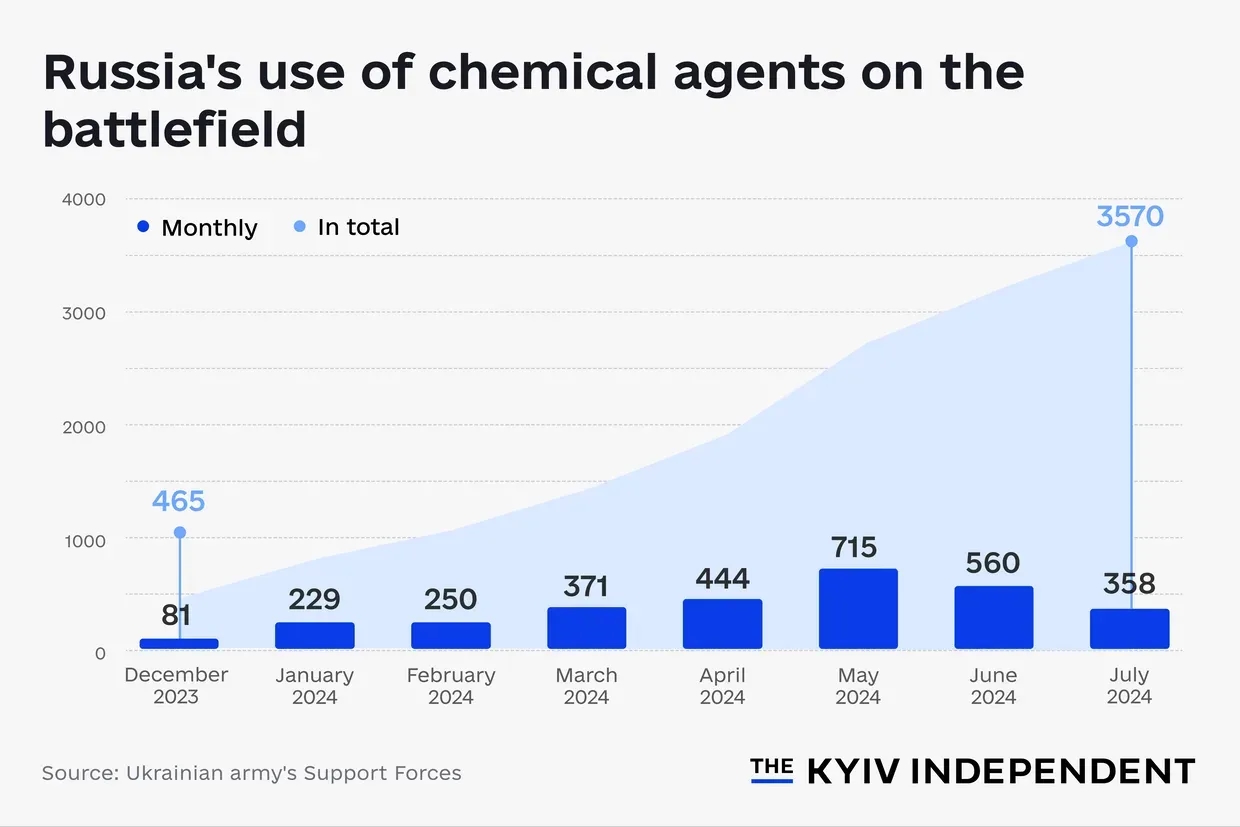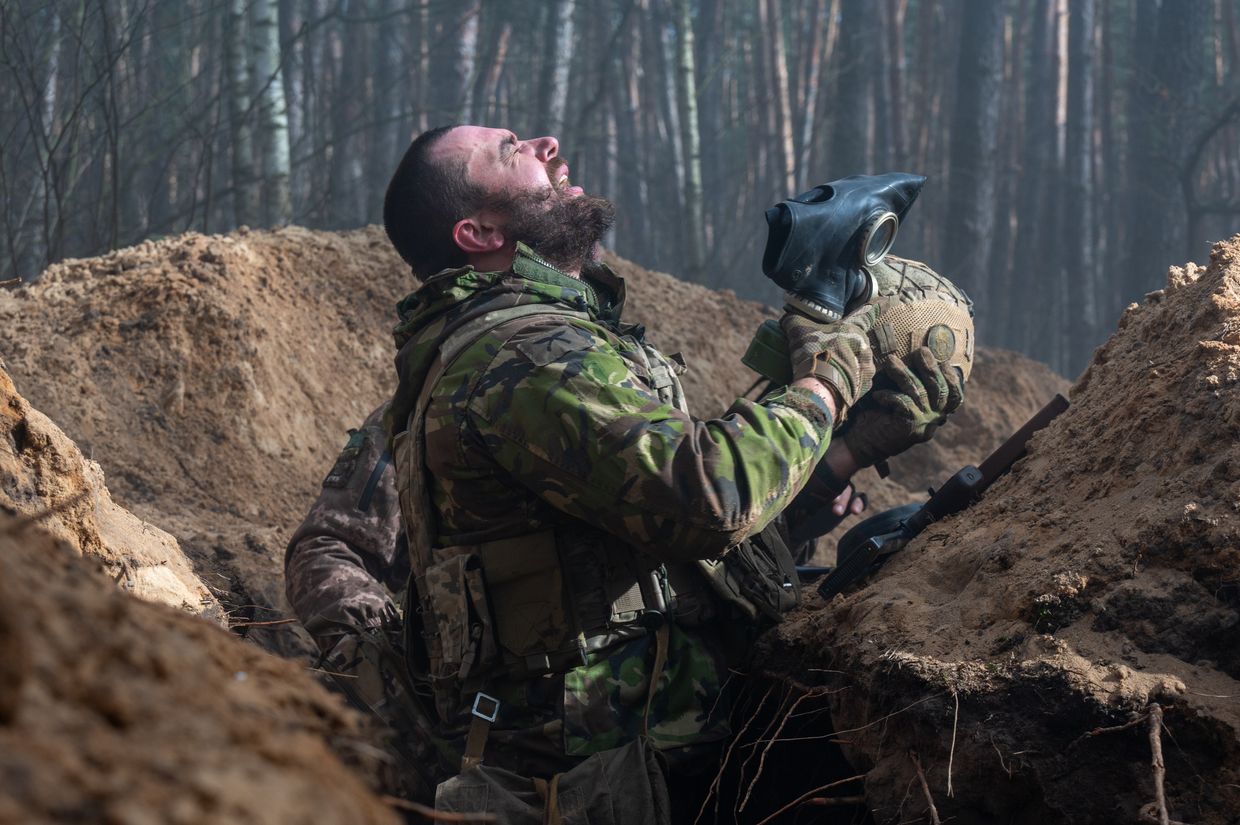Ukraine reports over 4,000 cases of Russian chemical weapon use on front line

Since the start of Russia's full-scale invasion, Ukraine has recorded over 4,000 cases of Russian chemical agents used on Ukraine's front line, including over 3,100 reported cases since December 2023, marking a significant uptick in the weapons' use, Ukraine's Support Forces reported.
The numbers indicate a stark increase in the use of illegal chemical agents, marking a sharp uptick from about 600 recorded uses as of January, Ukraine's military reported.
According to statistic compiled by Ukraine, reported cases peaked in May 2024 with a record high of 715 cases reported, and has slowly declined into the summer months. No data was immediately available for the month of August.

Ukrainian soldiers and officers interviewed by the Kyiv Independent acknowledged that the tactic is effective, allowing Moscow to capture positions occasionally without destroying them.
Ukrainian soldiers reported suffering up to six gas attacks daily, usually two to three attacks within an hour.
Earlier this year, the U.S. State Department confirmed Russian forces have used the chemical agent chloropicrin in Ukraine. The announcement was part of a larger statement about the introduction of new U.S. sanctions against more than 280 individuals and entities.
"The use of such chemicals is not an isolated incident, and is probably driven by Russian forces' desire to dislodge Ukrainian forces from fortified positions and achieve tactical gains on the battlefield," the U.S. State Department said at the time, asserting that Moscow has violated the Chemical Weapons Convention by deploying riot control agents as a method of warfare.
Chloropicrin is often used as an herbicide. According to the U.S. Centers for Disease Control (CDC), exposure to its vapors can cause severe irritation to the skin, eyes, and, if inhaled, internal organs.
Russian naval infantry units have previously confirmed that they used illegal K-51 aerosol grenades, filled with the Riot Control Agent gas CS (2-chlorobenzalmalononitrile), a tear gas used for crowd control. Riot Control Agents are prohibited from being used in modern warfare under the Chemical Weapons Convention.
The Organization for the Prohibition of Chemical Weapons (OPCW) said on May 7 that accusations from both Ukraine and Russia that the other has used chemical weapons during the full-scale invasion remain "insufficiently substantiated."
"Both the Russian Federation and Ukraine have accused one another and reported allegations of use of chemical weapons to the Organization," the OPCW said in a statement.
"The information provided to the Organization so far by both sides, together with the information available to the Secretariat, is insufficiently substantiated."
The organization also noted it had not received official requests to investigate the use of chemical weapons from either Ukraine or Russia.












